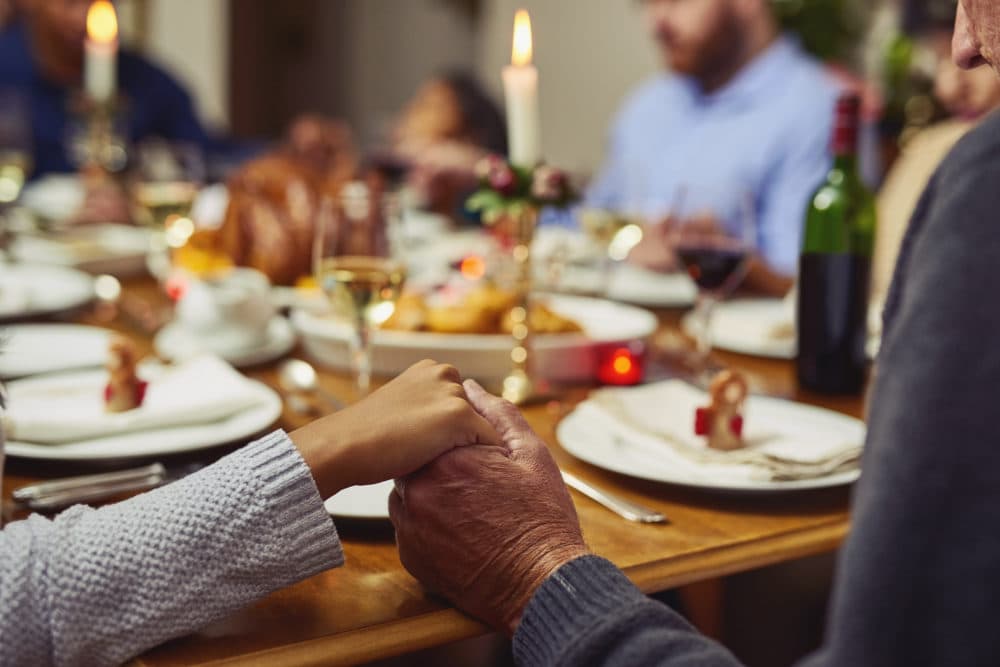Advertisement
Year In Review
Cognoscenti's Best Stories Of 2020
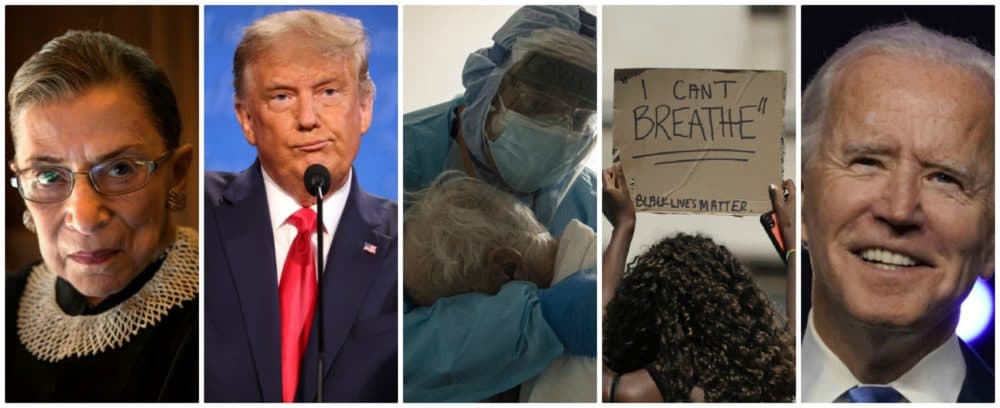
We wrongly presumed last January that the impeachment trial of President Donald Trump would be the biggest news story of the year. Clearly, 2020 had other ideas.
In the 450 pieces we published this year, we covered a national reckoning on race, a presidential primary season and general election, a warming climate, a Supreme Court vacancy, an immigration crisis on our Southern border, and of course, the ongoing coronavirus pandemic.
Our goal this year, as ever, was to publish essays and commentaries that offered a salve of connection, that made you think — whether it was piece about racism in medicine, or "skin hunger" or the psychological benefits of brain fog. That we edited and published the vast majority of this work from home, with our own children underfoot, from messy kitchen countertops and make-shift desks shoved into the corners of our bedrooms, is an experience we won't soon forget.
So, here are our best stories this year. This list reflects the pieces that attracted the most readers, but also took up the most space in our hearts and brains. We've also included a special section below that curates the call-out stories we published in 2020 — which featured hundreds of our readers' voices. (And we couldn’t include all we wanted, so for more, check out #bestofcog2020 on Twitter.)
With thanks to our contributors for sharing your words and ideas; and our readers, for sharing your time.
-- Frannie Carr Toth, Cloe Axelson and Kathleen Burge
Our 10 Most-Read Stories Of 2020
1. My Wife Is Black. My Son Is Biracial. But White Supremacy Still Lives Inside Me (June 22)
To protect my son and other black children, we must do the work of stamping out white supremacy where it lives: in our systems, and in ourselves, writes Calvin Hennick.
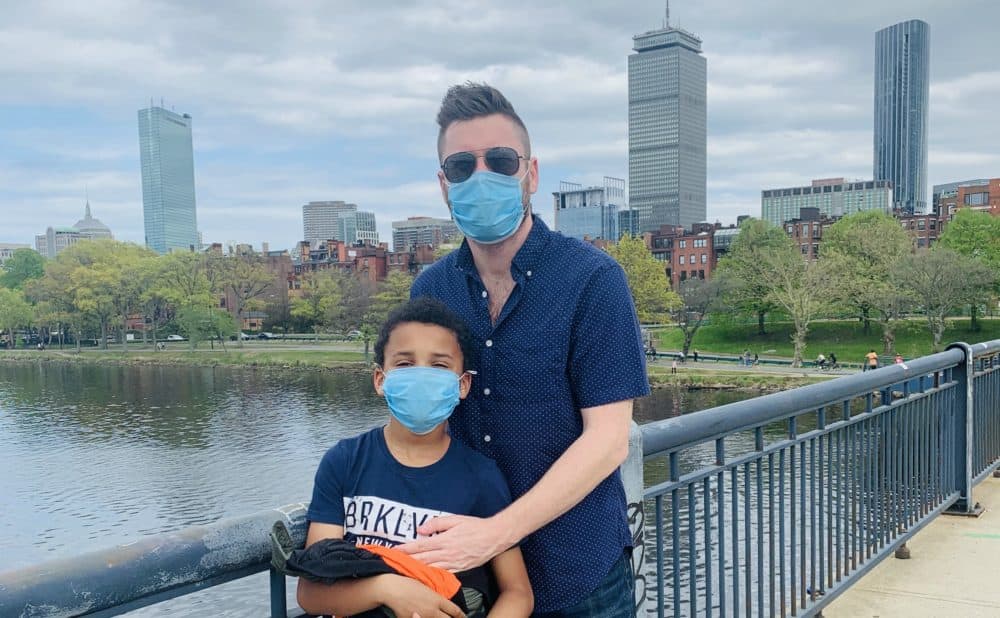
2. 'I Promise. I Promise.' You Can't Cheat A Pandemic (April 3)
We need everyone to hold the line as the epidemic inevitably gets worse, writes epidemiologist Jonathan Smith. This is not an opinion. This is the unforgiving math.
3. A Dual Degree From Oxford. A Medical Degree From Harvard. Neither Protected Me From Racism (June 18)
Frequent subtle, and less-subtle, messages betray the assumption that I’m lacking in smarts, untrustworthy or even a threat, writes Tafadzwa Muguwe.
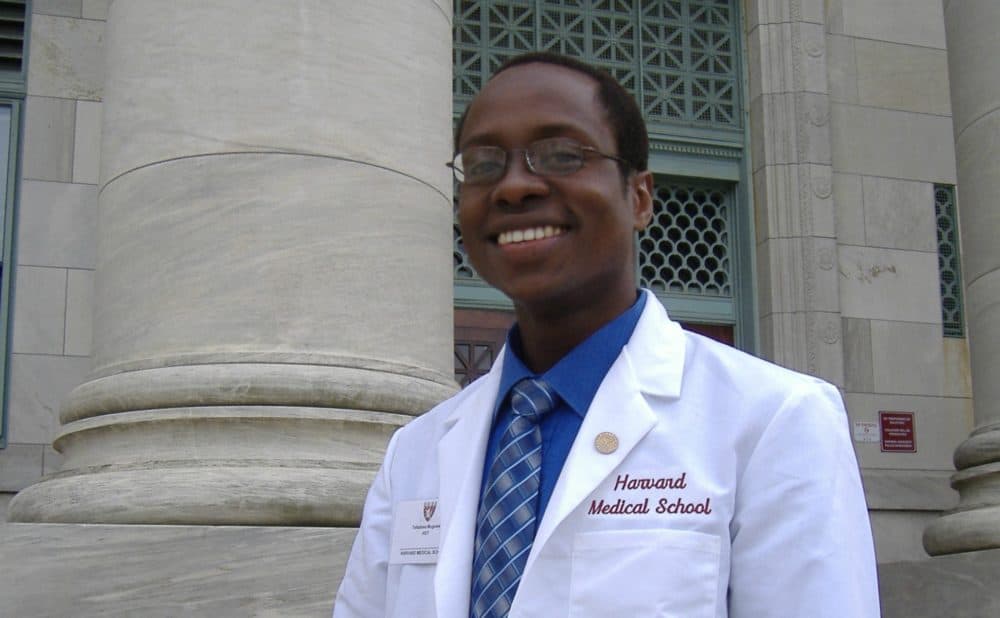
4. Don't Lose Hope. Be A Fanatical Optimist Instead (February 5)
There is plenty of cause for despair, and rage, at the acquittal of Donald Trump, writes Steve Almond, but there is also cause for hope.
5. I Have A Presumed Case Of COVID-19. This Is What The Past 10 Days Have Been Like (March 26)
I don't know for sure if I have the disease caused by the novel coronavirus, writes Kat Powers. But I do know that I feel miserable.
6. ‘A Profoundly Un-American Attack On Civil Society’: Why Trump’s Paramilitary Force Is Unconstitutional (July 23)
Deployment of this clandestine force, answerable only to the president, is manifestly unconstitutional, writes Laurence Tribe.
7. We're Pediatricians In A Pandemic. We Shouldn't Be Taking Care Of Your Grandparents (December 8)
We’ll do it, because helping during the pandemic is the right thing to do, write six senior pediatric residents at MassGeneral Hospital for Children. But we’re your last resort, your second string.
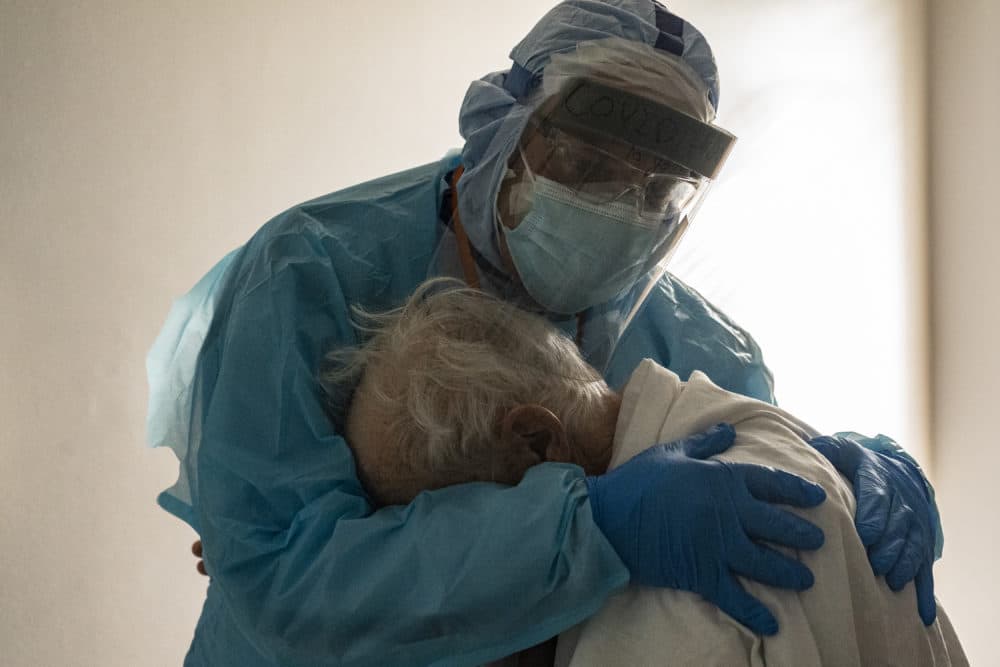
8. That ‘Brain Fog’ You’re Feeling Is Perfectly Normal (April 22)
Our brains are adapting to acute stress, writes developmental neuropsychologist Molly Colvin. Time warps so that the present moment is elongated. Complex thinking skills, like decision-making or planning, go offline.
9. Parents Are Not OK (April 10)
This is really hard, writes Chloe I. Cooney. What’s amazing to me is how consistent this struggle is among every parent I talk to.
10. This Week Almost Broke Me. And It's OK To Say So (April 24)
Sometimes you just need to say, "this is awful" before it's possible to gather yourself up and march on, writes Cloe Axelson. Maybe we all need to fall apart before we can be put back together.
14 More Favorites From Your Cog Editors
We are privileged to work with a community of writers who trust us with their stories and ideas. We only wish we could include more than just 14! See a little commentary from us about what went into these pieces, and why we love them.
1. I've Been In Coronavirus Quarantine In China Since January. Here's How I Spend My Days (March 9)
Emily He, a resident of Cambridge, Mass., has been stuck in Kunming, China since the novel coronavirus outbreak began. This is a diary of how she's been spending her time.
FCT: Doesn’t this feel like a lifetime ago? What strikes me about this piece — and what we didn’t know at the time of publication — is what a window into our future this post would become.
2. 'Two Weeks Ago, He Moved Out': What It's Like To Have A Family Member On The Frontlines Of The Pandemic (April 15)
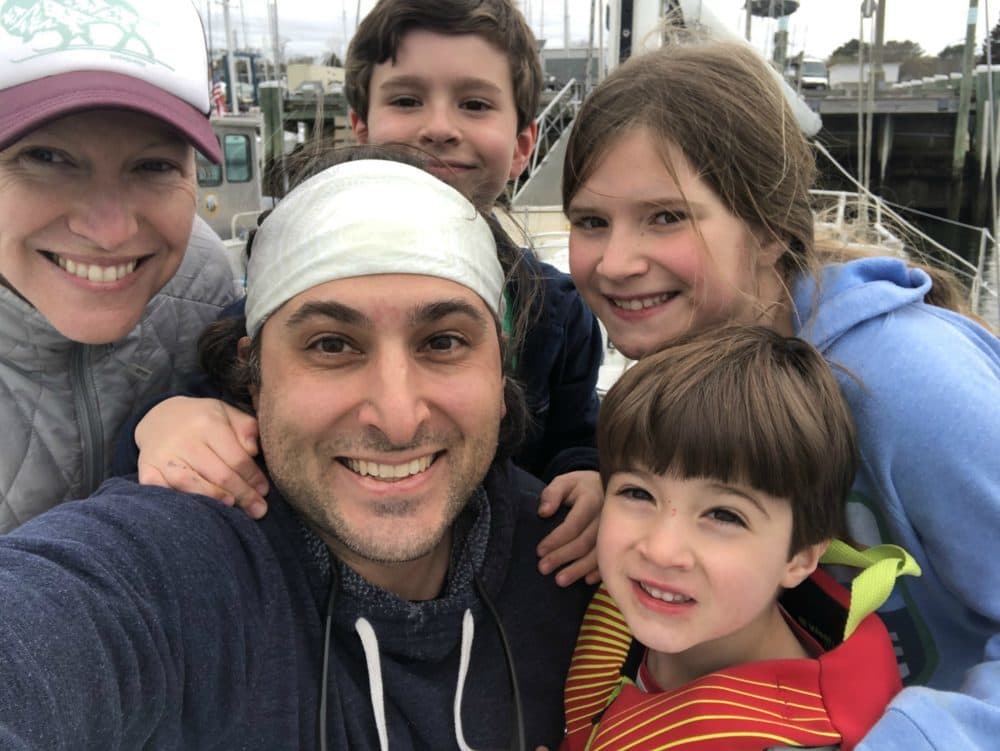
Sara Shukla's husband, an ER doctor, temporarily moved out to limit his family's exposure to COVID-19. With three young kids at home, she's trying to find a new normal.
CA: This piece is a snapshot in time of the early days of the pandemic. It's a celebration of small kindnesses, set against the angsty paralysis of lockdown when we knew so little about the virus.
3. My Daughter Wants To Know Why We've Never Had A Woman President. I Wish I Had Answers (March 6)
I tell my girls they can be anything they want to be, writes Cloe Axelson. I hope I’m not lying. I hope I’m not setting them up for disappointment.
FCT: Thanks to this essay, I cry every time I hear “Show Yourself” from the Frozen 2 soundtrack, and in my house — that is VERY often. Don’t miss the audio version of this piece. Even if you make it through the written piece with dry eyes, you don’t stand a chance once you hear Cloe’s narration over the song itself. You’ve been warned.
4. John Prine Made Me Want To Be A Songwriter (April 9)
Before I discovered Prine, writes Grammy-nominated artist Alastair Moock, I didn't know you could do that with words. Be funny and sad and mystical all at the same time.
FCT: John Prine died of the coronavirus in early April. This beautiful tribute also has lovely insight into the profound effect Prine had on Alastair as a young, aspiring musician. I suspect there’s an army of singer/songwriters who drew similar inspiration from Prine.
5. I Want For My Black Sons, What My Mom Wanted For Me: To Be Seen As Fully Human (June 5)
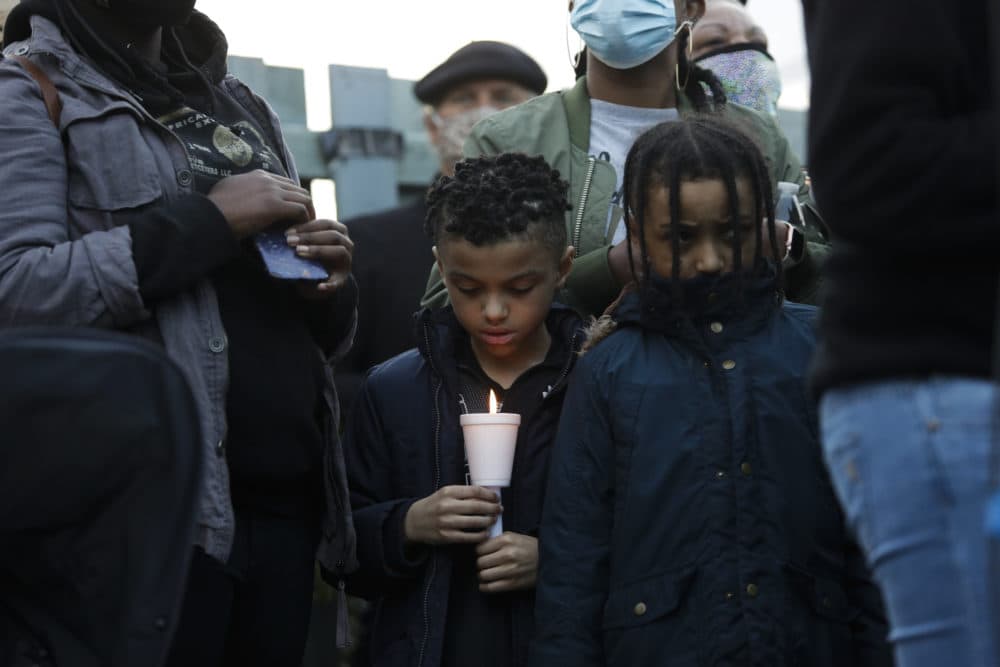
In the last few days, I tear up whenever I look at my sons, writes Orlando Watkins. It’s the realization of how much pain and fear my mother and her mother must have carried, thinking about the danger that their Black children faced.
CA: This piece started as a letter Orlando was writing to his mom. It was raw, written in anguish, after George Floyd was killed by police officers in Minneapolis. We encouraged him to keep going. I had a hard time sleeping while I worked with him on this edit.
6. Let Your Teen Stay Up All Night, And Other Pandemic Parenting Advice (May 19)
Psychologist Marlene Major believes adolescents can benefit from defining this moment for themselves. Younger kids, however, do better with structure.
KB: Last spring, when many schools were figuring out remote learning, and older kids mostly worked on their own, I heard the same worry from other parents of teenagers: Their kids were staying up really late. I had edited Marlene Major’s commentary and I found myself quoting her a lot: It’s OK. Right now, older kids need reassurance but also space to create their own new normal. Major’s commentary soothed me and my friends at a time when comfort was hard to find.
7. Once His Attitude About His Future Changed, Travis Roy Never Looked Back (October 31)
Despite all he had suffered, Travis felt lucky and worked tirelessly to improve the lives of the less fortunate. That was his nature, writes E. M. Swift.
FCT: Travis Roy was the Boston University hockey player paralyzed 11 seconds into his first college game. He went on to be tireless disability activist and philanthropist — an example of bravery in the face of adversity. After the 2013 Boston Marathon bombings, I emailed to ask if he had any messages of courage and consolation."People ask me if I 'accept' my injury," Travis wrote in the essay that poured out of him, "and I must admit I've spent time thinking about it. My response is I'm not sure I'll ever accept it, but I will make the best of it. The truth is, my life is far better than I ever imagined it would become." Working with Travis was a wonderful experience, and I’ve reflected on the lessons of that piece time and time again over the years. I was gutted when I heard he died. The tribute we published, by his friend and biographer E.M. Swift, is as memorable as Travis’s 2013 piece in all it reveals about his singular character.
8. Why The Death Of RBG Is Very, Very Bad For The Planet (September 22)
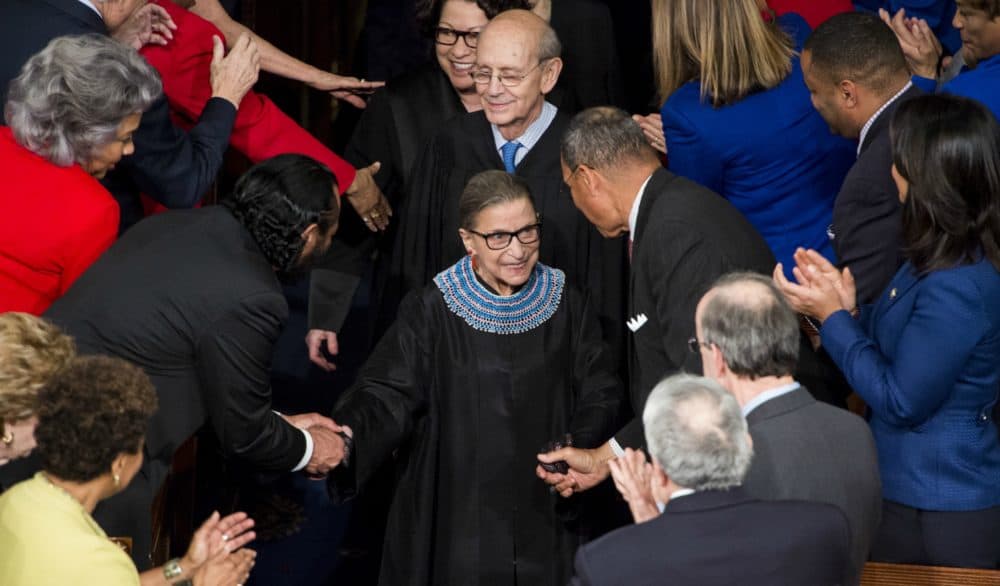
The movement to transform the nation’s energy economy loses as the Supreme Court skews right, writes Frederick Hewett. The death of Justice Ginsburg casts a long shadow.
CA: Lots of people were talking about what Justice Ginsburg's death might mean for health care and abortion. Fred Hewett has become our go-to voice on climate change, and here he lays out what a solidly conservative Supreme Court mean for efforts to thwart global warming.
9. My Grandfather And Other Hidden Heroes Behind The Fight Against COVID-19 (March 30)
LaShyra Nolen's grandfather is a truck driver, and wasn't offered education about how to protect himself from the virus at work.
KB: As Americans saluted essential workers last spring — doctors and nurses and grocery store workers — no one talked about truck drivers. LaShyra Nolen, a Harvard Medical School student, introduces us to her grandfather, Tony, who has been a truck driver for more than 40 years. She uses his story to empathetically describe the predicament of many blue-collar workers during the pandemic: They need their jobs, but at what cost?
10. What It's Like To Be A Paramedic During A Pandemic (May 7)
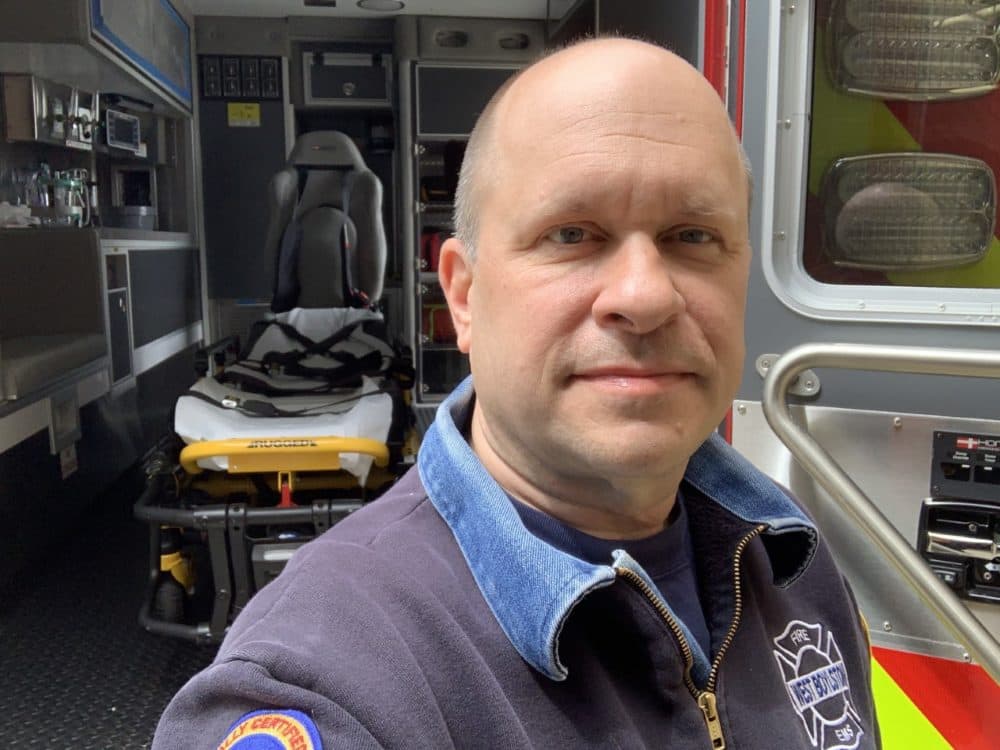
Many people who work in emergency medicine say this is the most challenging moment in their professional lives. In our ongoing series of dispatches from the front lines, we hear from Ted Flanagan, a paramedic in Central Mass.
FCT: Ted is one of my favorite Cog writers. His pieces are surprising, haunting and completely unforgettable. When COVID rates started surging this spring, our colleagues in the WBUR newsroom started looking for front line dispatches. We immediately thought of Ted, because — renaissance man that he is — in addition to being a beautiful writer and teacher, he’s also a paramedic. We asked him to tape himself, audio-diary style and send us the recordings. This audio piece is the end result.
CA: This piece has a companion in Clay Dalton's meditation (and accompanying audio essay) on intimacy, and the relationship between nature and humanity. Clay, who is an emergency room physican, gathered all the sound himself — from walks in the woods, to his shifts in the ER. It's beautiful.
11. ‘I Do It To Survive': Being Black In America Means Adapting To Constant Risk (May 29)
The most paramount adjustment I have made is knowing that there is no other choice, writes Theresa Okokon.
KB: Theresa Okokon has the uncanny ability to write about heavy topics — police killings, racism, depression — by mixing deep thought with sly humor. She always surprises me. In this essay, which she wrote just after George Floyd was killed by Minneapolis police, she describes how squirrels navigate risk in an obstacle course. It’s a metaphor for the risks “my Black body” also faces, how Okokon must adapt — and how exhausting it is to live this way.
12. Deval Patrick: 'Policing In America Has To Change For Peace In America To Exist' (September 26)
I pray that as we protest we show the strength of controlled resolve, and channel our rage into the ballot box, writes former Mass. Gov. Deval Patrick. And that America stops kicking down our doors and allows us to be truly free.
CA: Gov. Patrick wrote two powerful pieces for us in 2020 — a tribute to Rep. John Lewis; and this one, after no police officers were charged with a crime in connection with Breonna Taylor's killing. I don't know that I've ever heard the Governor sound this emotional.
13. Pulled By Grief And Hope: After 10 Months On The Front Line, I Was One Of The First To Get The Vaccine (December 17)
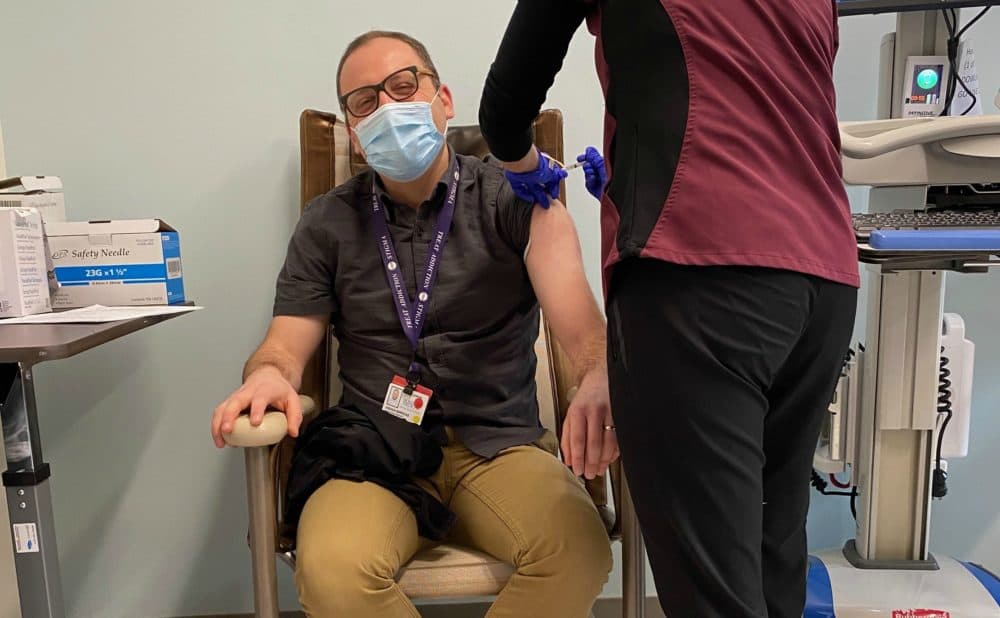
As I stared at the small glass vial, time slowed down, writes Dr. Joshua Barocas. In that moment, I thought of the past 10 months.
KB: I was thrilled, of course, that the COVID vaccines arrived this month. I understood intellectually that these hundreds of thousands of glass vials represented the beginning of the end of the pandemic. But I couldn’t let myself feel the emotion of the moment — until I read Dr. Joshua Barocas’s essay about getting the vaccine. His own grief over all we’ve lost this year — the people, the connections — is searing. And that suffering gives meaning to his hope.
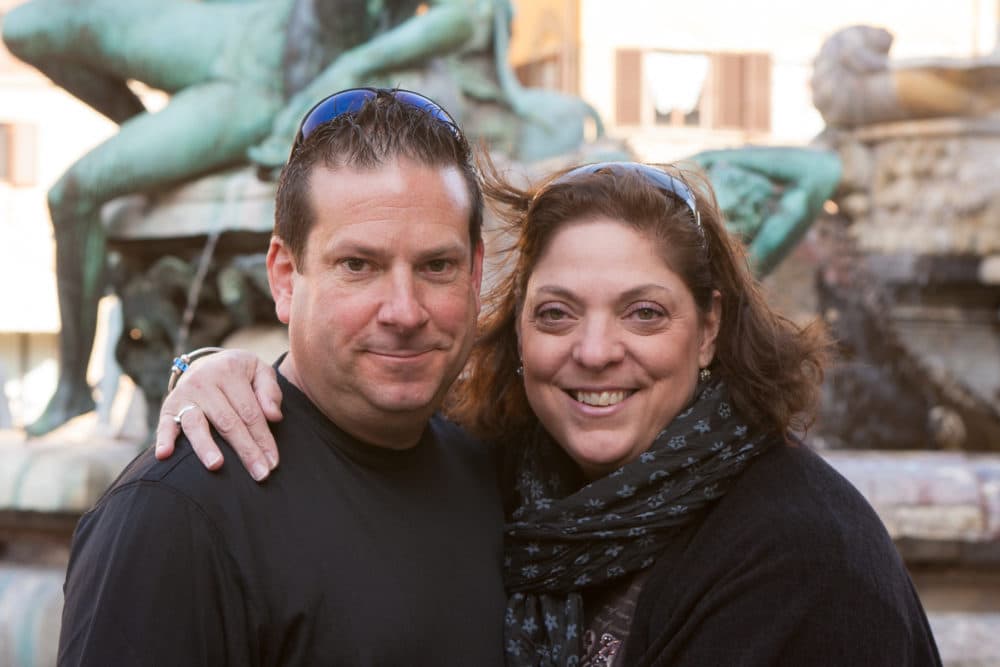
Karen Nascembeni and her husband, Steven T. Richard, contracted the coronavirus last March. When Karen woke up after 31 days in a medically induced coma, Steven was gone. Here, she remembers her husband and their love for each other. This piece was created in collaboration with the FacesOfCovid project.
FCT and CA: We first reached out to Alex Goldstein, the founder of FacesOfCovid in October. The work he's been doing to make sure we all hold on to our humanity — and remember the people behind the statistics — is so important. This interview was supposed to be part of a larger patchwork of COVID stories (that we are still working on producing). But Karen was such an exquisite storyteller, and her descriptions of Steven so heartbreakingly poignant, that we couldn't bear to cut our hour-long conversation down to less than a minute. We switched gears immediately and set to work crafting this profile so that it could run in time for the holidays. As our newsroom collaborator David Greene said of this piece, "I can honestly say I haven't worked on many stories that have stayed with me the way this one is." Hear, hear. You better believe I (Frannie) bought a bag of Poppycock and will be eating it in Steven and Karen's honor on Christmas morning.
A New Frontier: Multi-Voice Cog Audio Pieces
Cog readers have come to look out for our semi-regular "call-out posts." When an issue, a trend or an item in the news warrants, we call on our readers and trusted contributors to weigh in — and then we compile the results in a round-up post. But this year, inspired by the universality of the challenges we were all facing, we brought a handful of these pieces to WBUR's airwaves. Since we poured so much heart and soul into these projects, in an effort to uncover some emotional truth, we're highlighting them in this annual review.
July 4th Is Different This Year, And Also The Same. 'Independence' Day Is Complicated (July 2)
Independence Day this year comes against the backdrop of a pandemic, an economic depression, a reckoning on racism and the most divisive election in modern history. We wanted to try to capture this moment, and we knew one essay wouldn’t be enough. We asked. You answered.
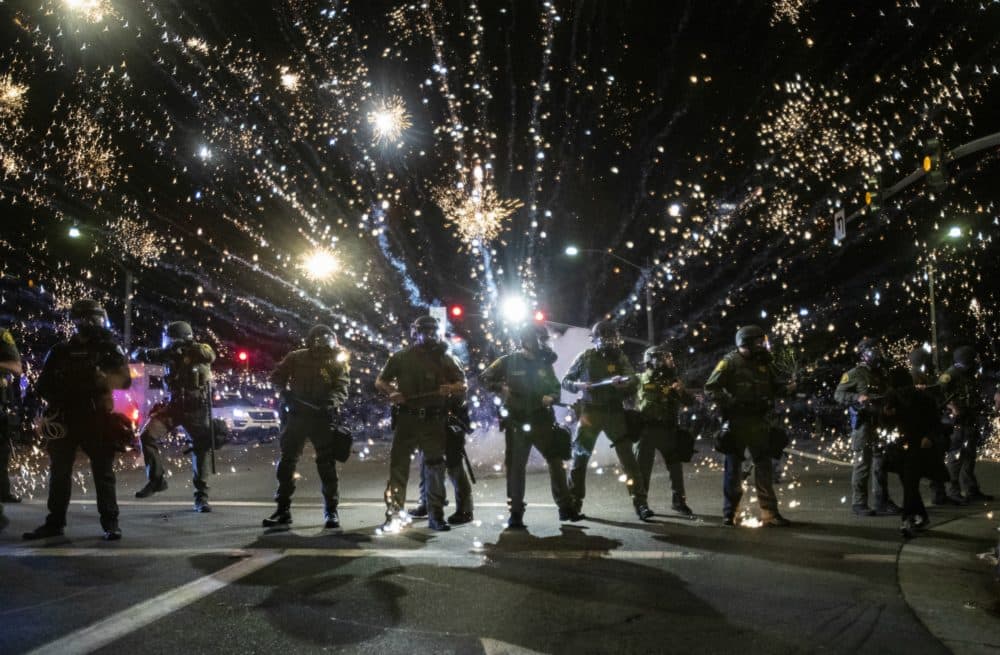
‘Everything Is Up For Grabs’: Welcome To ‘The COVID Year In Education’ (August 20)
We wanted to cover the conversation about back-to-school, but so much was in flux. Then we realized — the uncertainty is the point. These are your stories.
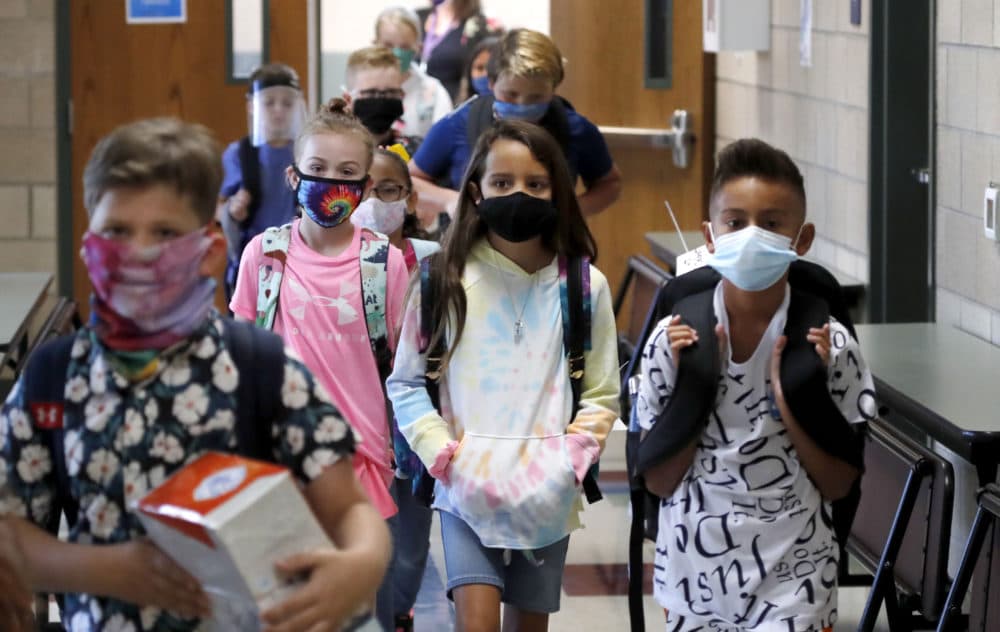
A Holiday Season Gutted By The Pandemic: We're Trying To 'Celebrate And Grieve At The Same Time' (November 20)
The experts agree: to be “all in this thing together,” we must stay apart. So how are you planning to navigate the holiday season this year? We asked. You answered.
